Pamela King's Blog, page 4
September 5, 2019
THE QUALITY OF LOVE by Berenice Walters 1979
The Dingo is the embodiment of a free and natural spirit; independent, noble and aloof, dignified and graceful, quiet and reflective; an animal of tremendous loyalty and compassion for members of their family group or the human fortunate enough to have earned the trust and love of this most intriguing native Australian.
There are countless tales of the devotion of the Dingo to a mate caught in a trap, poisoned, or incapacitated in some way; of a bitch deliberately making a target of herself to decoy a would-be enemy from her helpless pups; not aggressive enough to attack, but courageous enough to die for those she loves.
Over the many years I have been privileged to share with my Dingoes, I have been continually amazed at the breed's devotion to a loved one, the ability to question and reason, but nothing has affected me so completely as Dora's love for Joker.
Our young Dingo Dora, and our elderly Cattle Dog Joker (Champion Wooleston Blue Joker C.D.) had been running together for four years (but not bred), Dora showing her adoration
for Joker in every conceivable manner at all times, he accepting her devotion with pride, jealously guarding her from rivals - real or imagined.
It had been obvious that Joker's sight was failing, and on several occasions at dusk he had run into a closed gate thinking it open. One night I arrived home late after a meeting, and Joker and Dora were still running in the grass enclosure. I opened the kennel door, calling to them. Dora ran straight in, but Joker held back. She returned to him and tried to shepherd him over to, and through, the gateway. He came close, but would not attempt to enter the yard, jumping up and down in confusion, uncertain as to whether the gate really was open. Again and again Dora ran behind him, coming up close to his side, her neck cradling his face to encourage him to move forward with her guidance.
Continuing in her efforts to inspire confidence, she became increasingly agitated at his obvious fear and confusion. My fatigue forgotten, I watched in astonishment and pride, the desperate efforts of this Dingo bitch to assist her mate. Fondling his face with her muzzle,
her every movement displaying her increasing concern, she glanced appealingly at me, then back to Joker. Going to him I gently lifted him into the kennel yard, his safe arrival greeted by an overjoyed Dora who ran to him and embraced him, then to me, her incredibly beautiful eyes mirroring the gratitude she felt in my helping her loved one.
In the Dingo, I so often see acts of compassion, tenderness and kindness; characteristics so often lacking in our own society. Is it this distinctive quality that reminds man of his own inadequacies, jealously blinding him in a fury of brutality and hate for that which he cannot, or will not, accept? It is sad that the very qualities that endear the Dingo to so many are, through ignorance, the cause of much of the intolerance and prejudice in others. Perhaps through a better understanding of the Dingo, we will better understand ourselves.Merigal Dingoes
There are countless tales of the devotion of the Dingo to a mate caught in a trap, poisoned, or incapacitated in some way; of a bitch deliberately making a target of herself to decoy a would-be enemy from her helpless pups; not aggressive enough to attack, but courageous enough to die for those she loves.
Over the many years I have been privileged to share with my Dingoes, I have been continually amazed at the breed's devotion to a loved one, the ability to question and reason, but nothing has affected me so completely as Dora's love for Joker.
Our young Dingo Dora, and our elderly Cattle Dog Joker (Champion Wooleston Blue Joker C.D.) had been running together for four years (but not bred), Dora showing her adoration
for Joker in every conceivable manner at all times, he accepting her devotion with pride, jealously guarding her from rivals - real or imagined.
It had been obvious that Joker's sight was failing, and on several occasions at dusk he had run into a closed gate thinking it open. One night I arrived home late after a meeting, and Joker and Dora were still running in the grass enclosure. I opened the kennel door, calling to them. Dora ran straight in, but Joker held back. She returned to him and tried to shepherd him over to, and through, the gateway. He came close, but would not attempt to enter the yard, jumping up and down in confusion, uncertain as to whether the gate really was open. Again and again Dora ran behind him, coming up close to his side, her neck cradling his face to encourage him to move forward with her guidance.
Continuing in her efforts to inspire confidence, she became increasingly agitated at his obvious fear and confusion. My fatigue forgotten, I watched in astonishment and pride, the desperate efforts of this Dingo bitch to assist her mate. Fondling his face with her muzzle,
her every movement displaying her increasing concern, she glanced appealingly at me, then back to Joker. Going to him I gently lifted him into the kennel yard, his safe arrival greeted by an overjoyed Dora who ran to him and embraced him, then to me, her incredibly beautiful eyes mirroring the gratitude she felt in my helping her loved one.
In the Dingo, I so often see acts of compassion, tenderness and kindness; characteristics so often lacking in our own society. Is it this distinctive quality that reminds man of his own inadequacies, jealously blinding him in a fury of brutality and hate for that which he cannot, or will not, accept? It is sad that the very qualities that endear the Dingo to so many are, through ignorance, the cause of much of the intolerance and prejudice in others. Perhaps through a better understanding of the Dingo, we will better understand ourselves.Merigal Dingoes
Published on September 05, 2019 13:33
May 6, 2018
Boost Creativity by Writing on Paper
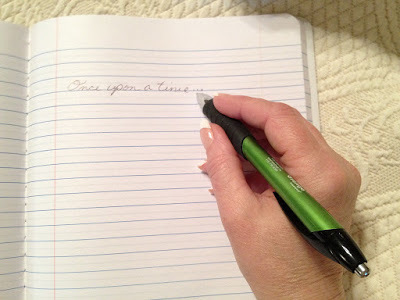 I read Jenny Bravo Books Blog Why You Should Write Your Novel on Paper. It had some valid points, so I gave the concept a try, not with a novel but a short story. Here is what I discovered. The link to the original blog is below.
I read Jenny Bravo Books Blog Why You Should Write Your Novel on Paper. It had some valid points, so I gave the concept a try, not with a novel but a short story. Here is what I discovered. The link to the original blog is below.Jenny begins with a comment on how a blinding white screen is tiring and can deaden creativity. I agree. There is nothing inspirational about it at all.
When I am stuck on how to phrase something, what word to use etc, I get up from the desk, wander around the house a couple of times, tossing the thought in my mind.
The movement seems to help get the ideas going. I also get to pick up dirty washing, rinse the few dishes in the sink and do other little tasks that don’t require great concentration.
In relation to hand writing she said, “the tactile movement, the distraction-free nature, and the feeling of connection encouraged my story.”
Let’s look at some of her points.
Margin writing. - If I'm writing a scene on paper, I get tons of ideas. I use the heck out of my margins, writing ideas for future scenes or characters, and brainstorming when I need it. Comment: It’s true. It is easier with pen and paper to note down ideas as you write. Just make sure you use pre-ruled paper. Nothing stifles creativity like having to draw lines on a piece of paper.Page-flipping, line-filling greatness. There's something amazing about the feeling of flipping a page filled with your own words. This is a great way to see your progress in full scale!
When I wrote Angel with Drumsticks I conducted several interviews with the central character. I used a recorder, but I also jotted down notes of key points. The book was always handy to note additional ideas and thoughts. When I finished I had a large exercise book filled with my handwriting. It was very messy with scribblings all over the place, but it made me feel proud. It hit home how much I achieved more than the final printed edition of the book.
Prevent Self-editing - There is no “delete” key when it comes to pen and paper. When you write your novel on paper, it allows you to get everything out in the open before your brain kicks in to fix it. All the misspellings, all the unfinished ideas, all the questions are welcome on the page. It starts with a big mess. Editing comes later.It really does allow creativity to flow better. How often have you lost your train of thought because that wiggly red line popped up and you went back to correct it.
You can still edit your story. Don’t like what you have written? Put a line through it. You can still read it later if you change your mind. I live in horror of deleting passages on the computer because once they are gone you can’t get them back unless you save draft after draft after draft.
Take it with you - Notebooks are portable and easier to carry than your laptop around. Tablets work, of course, but then there's the keyboard. Also, you never have to charge a notebook. Hooray for eternal battery life!
I hate keyboards on both laptops and tablets. OK I’m showing my age because I started with typewriters but honestly, you really can’t bash away at their keyboards when you a are in the middle of knocking off your villain.
Transfer your text, get ideas - There are plenty of good things to be said about the process of transferring scenes from paper to print. It gives you new ideas, a new way of seeing things, a fresh look at what you’ve already written.
My other thoughts
I am a bit of colour code freak, so I always have an array of coloured pens on the desk. I use these to make any changes as they come to mind. They stand out more than using the same blue or black pen and much quicker then changing the colour of fonts on the computer.
Like many writers I lie in bed and concoct the most brilliant storyline or wake in the middle of the night knowing exactly how to describe my character. You too?
Now, think about it. You get up, turn on the computer, wait, and wait some more while everything loads, open your word processor, wait some more – idea gone! All you manage is jotting down odd bits and hope they make sense in the morning.
It’s a lot more effective to just get up, grab a pen and paper and write, write, write.
Even when I was writing this blog straight onto the computer, I got distracted with formatting the document and lost my train of thought. Idiot, time to take your own advice (or Jenny’s)
http://jennybravobooks.com/blog/write...
Now, the only thing I must do is improve my handwriting, so I can read it and avoid having to type it up straight away.
Published on May 06, 2018 14:16
April 29, 2018
Why you should read (and write) short stories
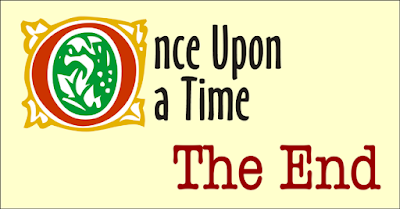
Why you should read (and write) short stories
Writers are using self-publishing options more resulting in an increase short stories published as eBooks. This is said to be on the increase as a preference for both readers and writers. So why should you consider reading and writing short stories? Here are a few points to consider.
Advantages of Reading Short Stories
Short
They are short. You can generally read them in less than three hours. A single chunk will be a substantial part of the entire story because when you read a short story for even five minutes, you see the progress. This encourages the reader to pick it up when they have just a few minutes to spare.
When you’re between books, or don’t have the time to immerse yourself in a full novel, it’s very satisfying to read a thoughtful, well-written story.
Not finishing
Many people find committing to a novel daunting especially if they have experience the discouragement on giving up reading before the end. This in turn discourages them from reading more.
Evaluation
Only after you finish a book are you able to fully evaluate the story. If you have enjoyed it you are ready to select something from the same author, genre, or topic.
On the other hand, if the story hasn’t met your expectations, you will be more open to trying something completely different.
New and varied genres
It is a great way to try new genres and different authors. It is less time consuming than committing to a full novel and cheaper.
If you are a reader of heavier stories there are times, such as ill health, when you want something to read but want to keep it light. I found reading short light romance perfect when I was in hospital or confined to bed. It is the only time I have that genre
Concise
They are usually written concisely. The get straight into the story and the plot.
eBooks
Download a short story collection or selection to your book reading app. Reading one story might take less time than your trip to work or waiting to see the doctor but got others downloaded if you want to read more.
eBook short stories are often very cheap or free.
Great alternative to novels or in between
A great read between the novels. Sometimes, after finishing a long, fascinating, and deeply involving novel it is difficult to get ‘into’ another story and it feels good to take a break.
Having a break from a novel doesn’t mean you have to make a break from reading. You can reach for an easier and less challenging read – a short story.
Writing
So, why should you WRITE short stories - All the above
Free samples as a marketing tool
When books were only published in the traditional way – by a publisher and in print format – short stories were a rarity unless it was an anthology by a well-known writer. Today, with self-publishing, print on demand, and especially digital format that is changing. Authors can now publish any piece of writing in a digital form, no matter how long – or short – it is.
Digital books mean authors can free samples of their books, but they don’t always give you a clear idea if you will enjoy the whole book. One way authors are overcoming this is to offer short stories for free that supplement a series of novels e.g. a short story about a main character’s background.
Well written – enhance your skills
They’re usually very well-written. Writers who can publish collections of short stories are generally well-established literary writers.
Short stories bring more pressure, because like poets, each paragraph, sentence, and word is more important than they would be inside a large novel. Short stories are precise with their delivery, they must capture the attention of the reader extraordinarily quickly and tell a full tale from beginning to end in roughly a half hour of reading.
Therefore, it takes a tremendous amount of skill to write a good short story, so it is a good way of honing your writing skills without committing to a full-length novel.
Book club
They’re perfect for book clubs. No one can show up to a book club without having read the selection — anyone can find the time to read a short story or two. It could be your story they choose.
Re-read
They lend themselves to rereading. As much as I have enjoyed many books, my reading list is far too long to take the time rereading novels. A good short story, particularly a series, doesn’t cut into my new books waiting as much.
Published on April 29, 2018 14:38
April 22, 2018
The Man with the Medals - ANZAC DAY – by Rev. Roger Bush
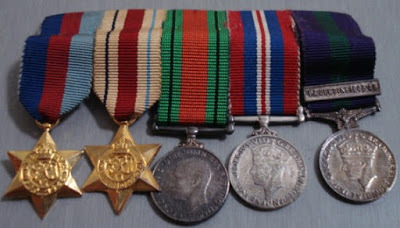 My Dad's medals my son now wears with pride every Anzac Day
My Dad's medals my son now wears with pride every Anzac Day
My Dad was not an Australian soldier, sailor or airman. Her served in the RAF during WWII.
I remember as a young child travelling by train from Campbelltown to Sydney to watch the Anzac Day march. He was no less proud than the Aussies to be marching and I was no less proud than any of the other kids looking out for family members.
It was Dad who gave me a copy of “Man with the Medals “I include it in my blog in tribute to my father and all those that fought in the defence of their country.***The Man with the Medals - ANZAC DAY – by Rev. Roger Bush You see him most days of the week but tomorrow he'll be a little more conspicuous.Tomorrow he will be clothed in a blanket of anonymity and he will present a corporate image of all his mates so you'll have no trouble recognising him.He'll be somewhere between 5'10" and 6'. He will be wearing a navy blue or a grey suit and the collar of his shirt will be a little rumpled and the tie, rather carelessly tied.In the button hole of his left lapel, will be a sprig of rosemary and hung rather self-consciously across his left breast, and I might add, quite carelessly, will be a row of ribbons or maybe some dangling medals. And if as you look at them from left to right you know your colours, you will see that he joined up sometime in 1939 or early 1940. That he served either in Europe or the desert or maybe up in the jungles of New Guinea or on one of the many Pacific Islands where he left some of his mates.He will pretend that he's actually slouching along and he will talk occasionally to the fellow in line next to him but there will be in his step that sense of pride, that sense of being part of a great yet sometimes terrifying adventure he shared with hi co-marchers not that many years ago, and the very togetherness will bring back memories.And the memories about which he speaks and about which he laughs as he marches, will be about two-up games or maybe the brewing of jungle juices or some little pub in London or maybe a brothel in Cairo.And he will either be a character about whom others will talk or he will be somebody who remembers the little vignettes of days gone by and brings them to the minds of others. And there will be laughter and then there will be a quick recognition that the band is playing a little more loudly, that the town hall steps aren't far away and he will square his shoulders and stiffen his stride and erect his posture ready for the 'eyes right' and when he snaps his head to the saluting base, the years will momentarily fall away and he'll be young again.This bloke passed the cenotaph just a little while ago, he took off his felt hat and he held it over his heart and for a moment his medals stopped jingling and in quietness he remembered Bluey and Charlie and Joe and the burial party just inside the wire at Tobruk or maybe the fuzzy-wuzzy angels carting him down the mountain side. He's a sentimental bloke this fellow with the medals and his eyes will be misty and he'll cough for he won't want to admit that his heart's been touched and that his memory has brought back the sting of tears.As he swings round the next corner, he will be looking for some excuse to drop out. He doubts whether he can stand the strain of the Domain service.He figures it might be just a bit boring. He doubts whether he can stand the strain of constituted prayers.He's done his praying, he says, and he's had them answered. He's prayed like hell when there's been 190 on his tail or when he's been in a fox-hole in the desert or creeping through the green horror of a sniper filled jungle and Somebody had said, "Yes, my son, you can live." And there's an exuberance about the fact that he's alive and 55 and wearing a few medals and he wants to share this with old Blue or old Fred or maybe old Charlie who's come over for the march for the first time in maybe ten years.So, there's a rendezvous and the bar is crowded and there's a hum of voices and somebody's still got two brightly polished pennies from a prior currency and they spin and for a moment he's care free and there's no such thing as housekeeping or tomorrow and he puts a dollar on the heads while Blue gets a few schooners and they begin to drink beer and tell lies.But the lies are only a caricature of the truth and he knows deep in his works what his lying mate is trying to say so he remembers the caring and the sharing, the camaraderie and the mateship, and he shudders momentarily as he remembers being afraid, really afraid, so he has another beer. Not so much to give him courage but rather to grease the wheels of memory and to promote perhaps that feeling of wellbeing.He may stagger a little when he comes out of the pub and he'll talk a little more loudly for he's been trying to drown out the lonely piper who's been playing everything from 'The Flowers of the Forest' to 'Bonny Dundee' in the confines of the bar and maybe, just maybe he'll bump you and he'll raise his head and smile and he'll say "sorry" and you'll go home and you'll think of the drunk who you saw on Anzac Day.So just remember this man in the grey suit with the medals on his chest is not the boy he used to be.His capacity is nowhere near what it was and this is probably the one day in the year when he counts his pennies and decides he can afford a couple of beers with his old mates and he sits in the train and rocks from side to side, gently in time with the train's swaying, half asleep, half dreaming, not quite sure whether he's going home on leave or whether it's all been some part of a dream of his youth and tomorrow he'll wake up with a bit of a head. He'll put on his other suit or maybe his overalls and he'll front up to work and the young fellows on the job will gig him and tease him with remarks like "and how's the old digger?" and he'll laugh and nod and come Friday he'll take his pay packet home to Mum and she'll give him back a few bucks for his tobacco and maybe the odd beer.He might play a game of bowls or go to the football and on Sunday he'll go off to Church with Mum on his arm.They'll say their prayers and he'll express his thanks to God for the life he's got back, for the kids he's reared and for the fact he's had a part in a great adventure that maybe did something for the world for just a little while.So, when you see this middle aged man with the medals tomorrow, don't think he's marching as a witness to the glories of war. He's not. He's marching to remember and he's marching because he's proud and he's marching because it is only amidst that companionship that he can assuage some of the fears that sometimes wake him during the night, in a cold sweat and he will remember men who have died in the vain hope for a peace that just hasn't come. And on the morrow, he will no doubt, somewhere, sometime, ask himself what it was all about a11d he will be just as surprised as you if an answer's forthcoming.He's 55 or so with a grey suit, a bit of rosemary and a few medals and for all his laughter, for all his boasting and for all his booze there is a constant prayer in his heart.It probably runs something like this:"God don't let what's happened to me and my mates, happen to my boy."So, don't judge my mate with the medals too harshly. I'm sure God listens to that prayer and it's up to you and me to see that it doesn't happen with a terrifying regularity it's been happening over the last few generations.So good luck mate, have a good day. I'll say my prayers with you.
Published on April 22, 2018 12:28
April 16, 2018
Tap Tap by Pamela King
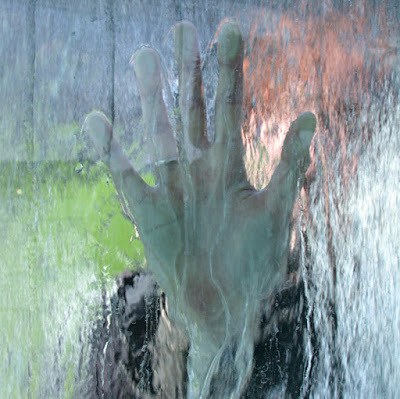
Water ran down the drive like a river.
The dry earth was too hard to soak up the deluge of rain.
Tap, tap on the glass.
The sound muffled by the drumming of rain.
No answer.
Tap, tap, tap. Louder and more persistent.
“Who’s there?” the feeble, trembling voice asked.
No answer.
“What do you want?”
“I have news for you. Can I come in? I’m drenched.”
“Go away, you’re frightening me.”
Crash, crash. The knocking is no longer a tap.
“I’m getting soaked out here! Please, open the door.”
Crash, crash.
“Just tell me what you want”
“I want to tell you about your lotto win…”
Published on April 16, 2018 13:30
April 8, 2018
Dingo Dilly: Protector of the Wollon Dills by Pamela King
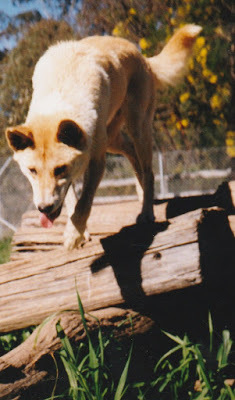
Fictional story inspired by The Wollon Dill and Dilly Dot Documents
It is claimed the Dingo disappeared from Wollondilly many years ago, but recent sightings refute this statement.
The Dingo, maligned and persecuted by white man for over 200 years, is now acknowledged by scientists and environmentalists as the saviour of the ecosystem. Sadly, too late for many species now extinct or endangered but is it too late for the Wollon Dills?
Last week I secretly met with Dingo Dilly who, unknown to most, lives in the deepest forest of Thirlmere Lakes.
Having just read The Wollon Dill and Dilly Dot Documents I asked Dingo about the legend of Wollon Dills and if they really existed.
“Of course!” she said, “but they are dwindling in number and have to be protected.”
She went on to explain how the dingo protects native wildlife.Dingoes suppress the presence of foxes, cats, rabbits, kangaroos, emus, feral goats and pigs. This enables small mammals to survive and increase. Where predator control is relaxed, vegetation cover and diversity also increase.
Do you know that since white man came to these shores 10 per cent of Australian mammals have become extinct? It is one of the highest rates recorded globally.
Some are due to white man slaughtering willy nilly for his own interests and some due to the animals he brought here and allowed to roam free. Because man thought my kind was noxious, war was waged against us and we were unable to protect the animals.
If humans know where to find the Wollon Dills, there is a risk to their future. Humans are renowned for killing species they don’t understand or trying to domesticate them for their own purposes.
Did you know wombats and eagles were once listed as noxious because they were considered a threat to farmers’ livelihoods?
There are four types of dingoes the Fraser Island Dingoes, the tropical variety and Inland or Desert Dingoes. My own kind, the beautiful Snowy Mountains Dingoes, are almost wiped out due to killing and hybridisation.
We were blamed for every sheep attack when, in most cases, it was domestic breeds gone wild or the farmers own working dogs. We were even used as an excuse for sheep and cattle losses due to farm mismanagement.
We prefer our own kind and mate for life but when we are deprived of that mate we will breed with domestic dogs. This causes hybridisation resulting in wild dogs who don’t care for the environment as we do.
Most people are not aware the Wollon Dills keep the Dill Weed under control. They are vital to our ecology. If it wasn’t for them the weed would grow wild and suffocate more fragile and rare plants around the Lakes. That’s how the environment works. One species protects another to ensure the balance of nature.
I am a lone dingo in the area, but I must care for the Wollon Dills and will remain here for life. I only hope when I am gone man has either realised what he has done to this planet or another dingo and his family will move in and take over caring for the Wollon Dills.
Published on April 08, 2018 12:07
March 31, 2018
T. R. Robinson, Author Interview with Pamela King
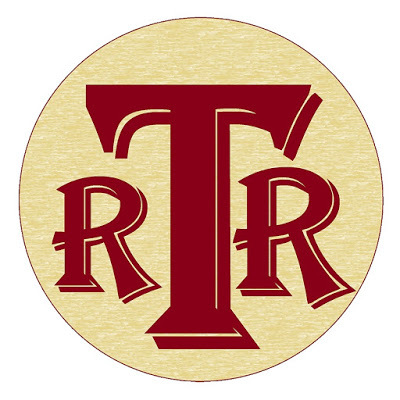
This week’s blog is a longer than usual, but I believe will be of interest to new Indie Authors. Tanya Robinson is an Indie author of autobiographical, biographical and biographical fiction both full length books and short stories.
Welcome, Tanya.Thank you, Pam, for giving me this opportunity to share experiences with your readers.
When did you start writing and why?
To answer the question in reverse order. It never occurred to me to write my story, or that of my ancestors and relatives, until others, confidentially, shared their tales with me.
It was then I came to realise how unusual and unique our lives had been. Even then, the thought of public exposure deterred me. However, eventually, after many years of consternation, it occurred to me our tales should not be lost to society; there is much in them that will hopefully help and assist others in their own lives.
Having reached the decision to publish, it was many years before I had the time to do so: to provide for my son and myself I had to work three jobs seven days a week and up to twenty-three hours a day (I catnapped on buses while travelling from one job to the other). Consequently, it was not until 2013 I commenced my authoring career.
Where do you get your information or ideas for your books?
Currently, all my books fall within the autobiographical, biographical or biographical fiction genre. Information and ideas are therefore drawn from real life; my own, my ancestors and my relatives.
How long does it take you to write a book?
Ah! Good question. I have no specific time span; it always depends upon what is happening in my life. Some, especially the short biographical fiction stories, can come into being within a matter of a few weeks while others can take many months. Some days I can get between one and two thousand words written while on others I can struggle to get five-hundred.
Although your books are based on the life of your family and yourself, have you needed to undertake research for your stories?
Oh yes. A couple of examples: In the abridged memoir series I needed to check some details regarding World War II actions and for the novel ‘Peter’ it was necessary to learn about some medical conditions and treatments. For both I used such resources as: My own library (comprises a mixture of books, mostly physical, on all sorts of subjects); Public reference libraries and the Internet (various sources).
Your autobiography reminds us there is a lot of cruelty in the world during both war and peace. How did you cope with revisiting painful memories?
To be honest, I have never really forgotten any of the difficult experiences endured though I have attempted to try and put them to the very back of my mind, but they are stubborn. Nevertheless, to spend dedicated time fully revisiting them was painful causing me to cry though much of the writing. Many memoir authors state they found the writing of difficult memories therapeutic but, though I understand what they are saying, for me it was simply and an extension of what was already floating round in my mind. Did I feel better after putting the details down? Not really, it made no difference. Nevertheless, I was glad to have got them onto paper, so the stories will not be lost (I am the last surviving member of my branch of the family who remembers everything. Of course, my son has experienced some but by no means all besides which, he has no children and therefore it all effectively ends with us.)
What gave you the strength to be a survivor?
In the earlier and wartime years: I do not really know. Perhaps it was my youth although when it came to the Gestapo and occupying forces I, together with my relatives, was determined they should not succeed and resisted them at every possible opportunity.
In later years: MY SON! Without question. I knew if I did not get us out of our situation neither he nor I would have survived. Thereafter, and in many ways still, I just wanted the best for him; for him to have a better, more peaceful life, than I had experienced. True mother love is a powerful force.
What would you say is your interesting writing quirk?
Not sure I have one. Sometimes I make a lot of notes before starting a book and then must try and sort all the bits of paper into order. At other times I simply sit and write as the thoughts occur effectively allowing the story to lead me.
You have written both fiction and non-fiction. What genre gave you the most enjoyment and satisfaction?
I enjoy them both. With non-fiction there is the satisfaction of seeing the facts take shape in a manner that, hopefully, engages, informs, and entertains the reader as well as conveying the realities of life. With fiction (of course, so far mine have been biographical fiction) I enjoy allowing my imagination to run in wild abandon (hopefully not too wild). I honestly cannot say I prefer one above the other. The mix is actually very good as it keeps everything fresh and does not allow my mind to stagnate.
What has been your most successful marketing tool or outlet?
Ah! The bane of many author’s lives. And Mine. Marketing is a very weak area with me. I am a private person and have never been one to ‘blow my own trumpet’. Naturally, I understand as an independent (indie) author it is necessary for me to let readers know my books exist and to try and encourage them to pick up a copy. However, though I have followed advice and have created an online presence: Website, Blog, Facebook, Twitter, Goodreads, Google Plus, etc. I am not really any good at it. Certainly, I have seen very little in the way of sales despite those who have read some of the books constantly leaving four and five star reviews. It must also be acknowledged the advent of free, easy use, self-publishing systems (for which we are all grateful) have resulted in thousands of books being published each day making it harder for readers to find their next read and for authors to be ‘heard’. Many state consistent, frequent, regular activity is required. That may well be true but the time commitment, with the competing demands of day-to-day life, can be a very real challenge.
What advice would you give someone considering becoming an Indie author?
It is an adventure. If you truly believe you have something valid to convey or share, then go for it. But! Do not expect to become a best selling author over night, or perhaps ever. Several of us, including me, thought people were out there just waiting for our books. Regrettably that is not so.
Best advice I can give is, if you are certain you want to do it and our prepared to devote endless hours, days, months, years to the project, sit down and start writing and seek to do so each day. Initial drafts may not appear to make a lot of sense but, at that stage it does not really matter. Just write but do not expect to have your book perfect after the first draft. It usually takes several re-drafts, a lot of editing and proof-reading before you get anywhere near a publishable product. Overall, try and enjoy what you are doing though there are bound to be times when frustration and impatience will arise. Perseverance is key to the authoring career.
I could go on but that would make this far too lengthy. Just one other point to mention: each author has a unique voice and though writing courses and so called writing rules exist (for some) it is important not to forget your uniqueness. In the end you should be writing in the style that suits you. Readers will detect, enjoy and appreciate genuineness.
Do you hear from your readers? Do you like to get their feedback?
I have few regular readers or followers and most of what I hear is through reviews. YES, I not only like but also value feedback. It does not matter whether it is positive or negative. I learn from all and consider I will never learn and improve without taking note of what readers say. Negative comments can open areas where I need to improve while, naturally, it is always a pleasure and joy to receive positive feedback. This is especially so for me because part of my purpose is to help those who have either experienced or are experiencing similar situations, know it is possible for them to get free and to overcome and that it is possible to survive and go on to lead a reasonably normal life even though there may be further challenged along the way.
How many books have you written? Which is your personal favourite?
So far: A three volume abridged memoir series; One novel; Four short stories.
Favourite? Do not really have one because they are all personal. However, if you really forced me to choose, probably the first in the abridged memoir series ‘Tears of Innocence’ because, despite all the difficulties, it records those wonderful, far too few, days I had with my beloved mother who I miss to this day.
Do you have a current work in progress?
- Another novel depicting some of my mother’s experiences (follows on from ‘Peter’).- Three more short stories in the ‘Bitches’ series.- Unabridged autobiography, principally of my own life but also including a few biographical cameos.- I also have a collection of notes and thoughts for other books though it is likely to be a while before I can get them into book form.
Who are your favourite authors?
I really enjoy some of the ‘classic’ ones such as Jane Austen; Emily Bronte; Charles Dickens; Thomas Hardy, Scott, etc. Though with all going on in my life these days rarely get the chance to read them.
With regard to more modern authors:
It would be hard to say I have a favourite. I have enjoyed: Claire Tomalin who has written a number of interesting biographies about some of the above authors; Lucinda E Clark who besides some memoirs has based her fiction books upon some personal experiences and has a great sense of humour; Your own books which I have found very interesting and informative (I am not just saying this because you are the one interviewing me - I have truly enjoyed them).
Though I now tend to focus more upon memoire, autobiography and biography I also enjoy occasionally reading in a variety of genre as may be observed from the selection of reviews available in my website. I like to support fellow indie authors by reading and reviewing their books.
What do you like to do when you're not writing?
I like to keep up-to-date with current affairs, enjoy preparing meals and love gardening. I also enjoy going for drives and walks in the countryside whenever my son can take me.
T. R.’s Website and Social Media
Website (with integrated blog): https://trrobinsonpublications.com
Facebook: http://facebook.com/tr-robinsonpublications
Goodreads: https://www.goodreads.com/T_R_Robinson
Your readers may find links to other social media accounts, such as Twitter, LinkedIn, Pinterest, etc. in my website side column.
Note: Many of the experiences recorded in T. R.’s books, bearing in mind they are all either totally or partly based upon fact, were violent, cruel and painful. Inevitably, descriptions of the perpetrators are ugly, unpleasant and critical and show them for who they really are or where. Though deserving of public exposure, T. R. is not of a vindictive nature and has no wish to impose upset, embarrassment or public shame upon the relatives, decedents or friends of those terrible people. ‘Why should they suffer for someone else’s cruelty’. In view of this desire to protect others, deserving or not, and of course her own family, and that many would recognise her from any photograph, T. R. prefers to utilise the logo shown above for her profile.****Interviewer’s note: I have read and reviewed all of TR Robinsons books. These reviews can be found by going to the Book Review Blog link on www.pam.id.au
Published on March 31, 2018 18:16
March 24, 2018
Does winning a tin of pineapple count?
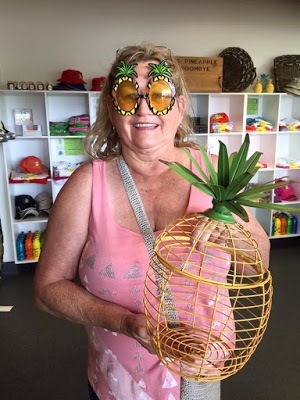 I am updating my author bio and have read any prizes won should be included. Recently, this photo of the lovely Jean Mills was a fun assignment in our writing group for poems, stories or caption. I was awarded a tin of pineapple for my little effort.***
I am updating my author bio and have read any prizes won should be included. Recently, this photo of the lovely Jean Mills was a fun assignment in our writing group for poems, stories or caption. I was awarded a tin of pineapple for my little effort.***Pineapples were her favourite foodIt didn’t matter what her mood
She wanted a bird in a gilded cage
It didn’t matter what its age
But where to get that lovely bird?She wasn’t going to be deterred
Yellow was the chosen hue
She wouldn’t settle for a blue.
And so, to the store she wentBut found all her cash was spent
It had gone on buying her favourite fruit
She thought her bird idea so beaut
A feathered friend to sing to herWill only be a silent blur
Now she gazes at an empty coop
With its lovely golden hoop
Published on March 24, 2018 12:07
March 17, 2018
The Importance of Research for Writers
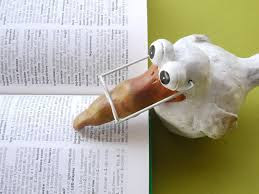
IntroductionMost people would agree research is essential for non-fiction work. It is obvious you must have your facts straight. How much research is necessary? Is it enough to simply check facts? Is it necessary for fictional work?
Non-fiction stories must also hold the reader’s interest. That means building your background images as much as presenting facts and developing the personalities of the characters.
In the case of fiction, your readers need clear images of time and place. If your story has a place or time, you need research to paint clear and accurate word pictures. ExampleIn the biography I am currently writing, the subject of the story grew up during the Great Depression and World War II. I felt it was important, for readers to understand what it was like in Australia and included additional detail of that time. That meant doing my research.
What research should you do?
Here are some points you should consider for your story.
Facts – getting your facts wrong will destroy your credibility as a writer. Check and double check your facts.Images – both graphics and the images you build with your words. This applies to scenery, fashion, transport, architecture etc Destination history and industry – you can’t put a space age industry in a 1925 cotton farming district - unless you are writing science fiction. If your location has an outstanding historical feature or relies on a specific industry you should also be familiar with related facts.Writing science fiction? Having made my previous point, and this is far from my field of expertise, don’t think you can avoid research. It may have come from your imagination, but many sci-fi readers are also science geeks, so you better bone up on current scientific advancements, research, and innovation.Where to find research resources.
Internet
Google and Wikipedia
Google and Wikipedia are a first stop for research but don’t let them be the last. There is a wealth of information on the internet and it is growing daily.
A word of warning about Wikipedia – Because it can be updated (information added, changed etc) by anyone, its accuracy is not necessarily reliable. I recommend using more than one source to confirm your facts.
Examples
When I was writing Angel with Drumsticks about an Italian rock band, Wikipedia, and many other websites stated the band undertook a world tour. This is incorrect and my source for the truth came from band members.
I had to research local Aboriginal history for an article I wrote. I am familiar with the topic and was surprised to read a significant event involving the massacre of hundreds of aborigines was wrongly located.
Travel and tourism websites
If a travel destination, accommodation facility or attraction does not have a website it might as well close its doors.
If you are writing about a destination the best research is a personal visit. If this is not viable, or affordable, travel and tourism websites can be valuable sources to help you develop a ‘feel’ for your setting with information and images.
Photos and images
If you are struggling to describe your characters or need some prompting, Google images can help.
Example
Your leading lady has red hair, but you can’t imagine her other features. A simple search in Google Images for ‘red hair lady’ will return an amazing collection for your consideration.
Word of warning – many photos on Google images are copyrighted. Check if they are labelled for reuse.
The same approach applies if you need a visual image to describe a location, building, architectural style etc.
Specialist organisations including Historical Societies and Government Archives
Historical societies, government archives, libraries, and newspapers are progressively digitising their records. Here, in Australia and most countries, State and Federal Governments also make archival collections available for viewing and, in some cases, copied.
Most historical societies do not put their full collection of photos on the internet (and I don’t blame them) but you may be surprised at what they have in their archives. They usually ask a small research fee or charge for copies of images. Please remember these people are mostly volunteers caring for our heritage. Income sources like this may be their only means to continue their work.
Example
I needed to clarify a local term used for what is now a major arterial road in Sydney. Due to the efforts and assistance of the local historical society, I found out what road the term referred and some interesting history behind its name.
Another historical society was able to provide me with photos important to the biography I am writing.
Another great source of historical information is https://archive.org/. Many records on this site are copyright free.
Libraries – physical and online
I love libraries but, in my little town the local library resources are limited. That doesn’t mean I don’t bother them – and often.
One of my favourite websites is Trove. Trove is a website set up by the National Library of Australia containing comprehensive data on Australian resources held in libraries across Australia including books, images, historic newspapers, maps, archives and more. I am sure other countries have similar data bases.
Once I find something of interest, I print out the information, take it to my local library and they request a copy as an interlibrary loan.
If the publication or document is not available, I can request copies (within the bounds of copyright).
Example.
When researching additional information for Angel with Drumsticks, I knew a newspaper in Rome had covered the Messa dei Giovani. I was able to obtain a copy through a major library here in Australia.
People
Ask an Expert. Writers, even if not well known, can open doors by saying “I’m a writer, and I’m trying to get the facts right.” If you have a question about a police procedure, ask your local police, if you have a medical question, ask a doctor.
Example
I needed to check information about aboriginal history and legends in my local area. I contact a couple who are Elders and Knowledgeholders of the Dharawal people and only too happy to tell me all I needed to know.
Your Friends.
Let them know what you are writing about and what you are trying to find out. You may be surprised at their knowledge of the topic and resources you can access.
Problems and distractions
It can be tempting, in the name of research, to get distracted or spend undue time on specific topics.
Example
I discovered a memorial had been erected to a dingo at an animal reserve in an inland NSW town. The animal park had closed, and I wanted to know what happened to the memorial. I spent many fruitless hours trying to solve the mystery. It would have been a nice inclusion, but it wasn’t essential to my story and my time might have been better spent.
So, advancing the writing of my book had been hindered, or at least distracted, because of my intense interest in the secondary topic of my book; dingoes.
Filling in the gaps.
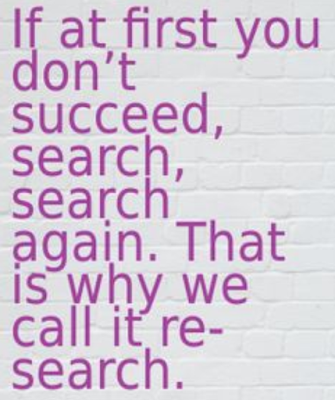 Regardless of the sources available, there will always be gaps; questions you feel need to be answered. It is hard, but we must pull ourselves back. Ask ourselves ‘how important is this information?’ or ‘can I get around it another way?’. Often there is a solution.
Regardless of the sources available, there will always be gaps; questions you feel need to be answered. It is hard, but we must pull ourselves back. Ask ourselves ‘how important is this information?’ or ‘can I get around it another way?’. Often there is a solution.***This article appeared as a guest blog on https://trrobinsonpublications.com/20...
Published on March 17, 2018 12:25
March 10, 2018
A Mother’s Love and Pride
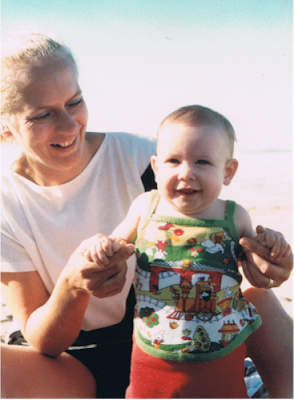 Not of my blood, not from my womb No hospitals, no recovery room Born of a couple that could not keep You grew in my heart with love so deep
Not of my blood, not from my womb No hospitals, no recovery room Born of a couple that could not keep You grew in my heart with love so deep Into a man you’ve now grown Oh, how those thirty years have flown A husband, a father, a firefighter You always make the world brighter
My son, my hero, my soul, my pride Tears of joy I have silently cried From the day they placed you in my arms I’ve told the world of all your charms
Published on March 10, 2018 21:09



